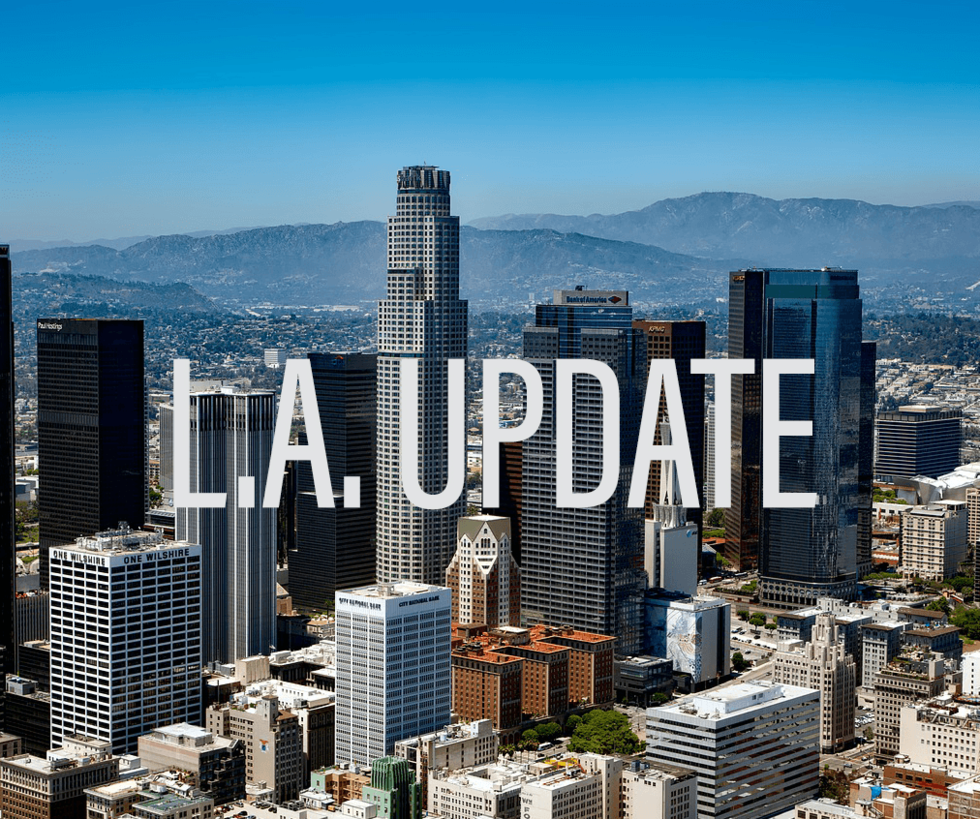Recently, the Los Angeles City Council adopted a handful of ordinances and made several recommendations to the City Attorney and other departments to strengthen current regulations. Here’s what you need to know:
Adopted Ordinances
Advertising (Off-site)
- Ordinance No. 185607 establishes a 700-foot distance buffer requirement for any off premises advertising for “Cannabis, Cannabis Products, or Cannabis Activity” in any “Publicly Visible Location” from multiple sensitive uses, including schools and parks.
Advertising (On-Site)
- In addition to any mandatory state signage under MAUCRSA, only one on-site sign per street frontage is allowed.
- On-site signage will now be content controlled, only allowing the following basic business information and a logo.
Technical Fixes to Existing Regulations
- EMMDs that entered into a payment plan with the Office of Finance to become current on outstanding taxes owed will be considered fully paid up for priority licensure.
- The Type 10 Delivery Retailer License has been deleted.
- Crimes that will bar you from applying from a license have been further amended.
- EMMDs can now be approved for the full type 11 distribution license, instead of just self-transport distribution only.
- The DCR will accept “Non-Retail” priority applications for no more than 30 days after it opens that particular application window. Stay tuned for when this window will open- it’s slated to come out very soon.
- If a testing lab obtains and maintains an ISO/IEC 17025 accreditation, the DCR may issue temporary approval to the testing lab before completion of a pre-licensing inspection. This did not have an urgency clause attached to it though, so it does not take effect for at least 30 days. In the meantime, the city is busy trying to find a quick fix to remedy the issues associated with an absence of licensed testing facilities in Los Angeles.
City Council Recommendations
Address/Control Cannabis Management Companies
- The City Council has defined “management company” and has proposed that “a management company shall not hold equity ownership in the applicant licensee or have the authority to make major decisions impacting the corporate structure of the applicant or licensee or the license held by the applicant or licensee.”
- Social Equity Program applicants and regular licensees would also have to get written approval from the DCR before engaging with a management company.
- All SEP applicants and licensees would also have to disclose to the DCR all written agreements or contracts with a management company and all other documents the DCR requires to identify all persons who will act as the management company for the business premises.
- If you can’t qualify for licensure from the DCR, the DCR may stop you from acting as a management company.
- If you’ve violated any local or state cannabis laws, the DCR may knock you out from acting as a management company to a SEP applicant or licensee.
- SEP Applicant and licensee would be responsible for all acts or omissions of its management company in connection with compliance with state and city laws.
- Starting out, management companies would be limited to entering into management agreements for no more than 3% of commercial cannabis businesses within the City of Los Angeles, by license type.
Clarity & Flexibility for Social Equity-licensed Businesses
- The City wants to allow the DCR to license incubator projects with multiple licenses for the education, training, etc. for SEP applicants.
- The City has asked that SEP applicants be allowed to apply for licensure even if they do not have local land use authorization, but local land use authorization must be obtained prior to completing the licensing process.
Taxes and Cannabis Reinvestment Act
- The City Council asked the City Attorney to draft an election “Ordinance and Resolutions” to place a ballot measure before the voters at the November 6, 2018 State General Election entitled the “Cannabis Reinvestment Act”.
- The ballot measure would, among other revenue captures, implement a one percent gross receipts tax on all commercial cannabis activity to be reinvested in the community with all funds going to a newly created Cannabis Reinvestment Trust Fund earmarked for various City items and groups.
What’s this mean for you?
First, take note. Do any of these changes or proposed changes affect you? If yes, how do they affect you and what action should you take now to adapt and make the best of the change. Next, stay tuned! We’re certain to see more changes coming.
Related Links:
- You Asked, We Answered: The New LA Ordinance Live Q&A Session
- City of Los Angeles Implements Sweeping Changes to Cannabis Licensing in Unanimous Council Vote
- 9 Key Takeaways From LA’s Newest Ordinance Amendments
- Proposed Ordinance Changes from the City of Los Angeles Department of Cannabis Regulation
Disclaimer: This article has been prepared and published for informational purposes only and is not offered, nor should be construed, as legal advice.

